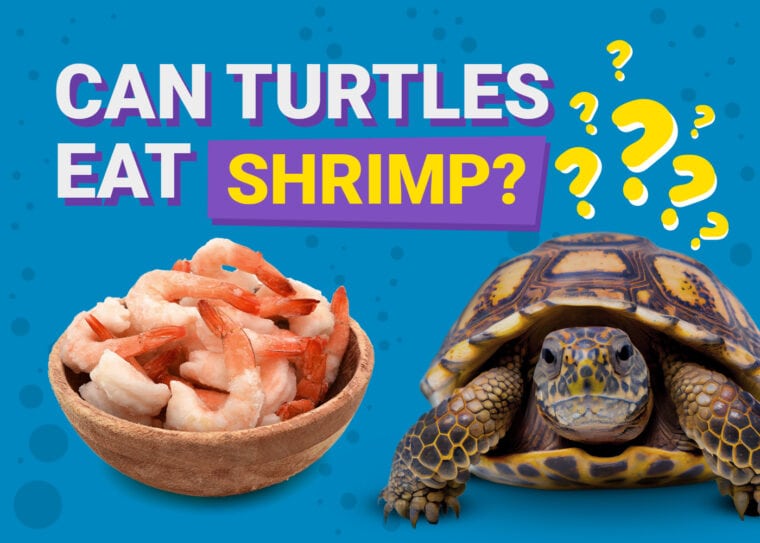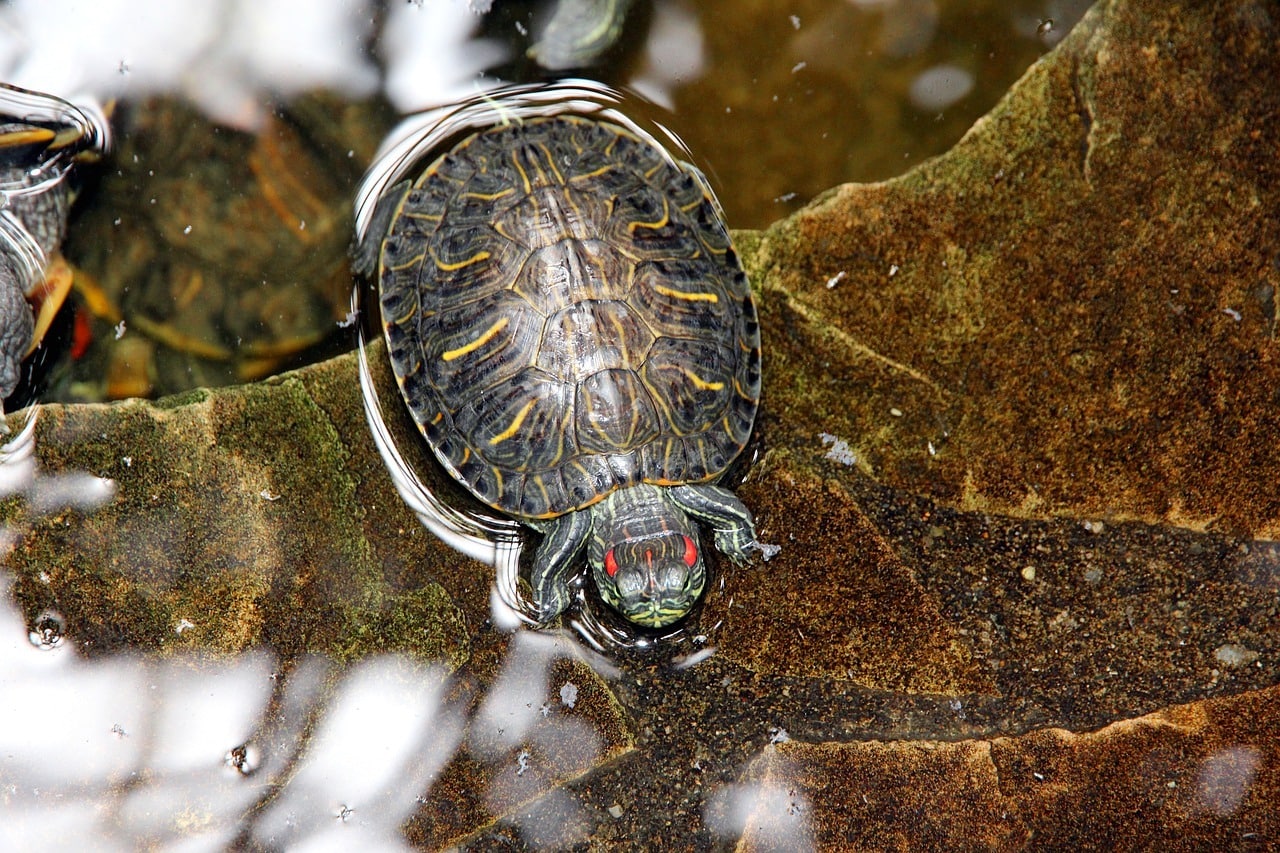
Turtles will most certainly gobble up a helping of yummy shrimp. However, it truly depends on the type of shrimp you want to feed your turtle. So, in this article, we will discuss the healthiest and most appetizing options for your turtle.
Shrimp is a great source of protein and other vital nutrients for your turtle’s overall health. So, let’s get into all the ins and outs of this aquatic animal source for your reptile.
Turtles Can Eat Shrimp
Turtles will find shrimp to be quite a tasty delight. They will look forward to feeding times when you offer them this aquatic snack. But like anything else, shrimp should only make up a small portion of your turtle’s diet, and not every form of shrimp is the best source of nutrients for your pet.

Frozen Shrimp
Frozen shrimp still has most of the nutrients intact. You can thaw them out and offer them up so your turtle can benefit from the freshness. Sometimes, these shrimp can be quite large, so piecing them apart can help your turtle during feeding time.
Live Shrimp
Live shrimp can be an excellent food source for your turtle. Not only will your turtle’s prey instincts kick in, chasing the live shrimp around the enclosure, it will also be the most nutritionally beneficial way to serve it.
Keepers often put ghost shrimp in the enclosure to appeal to your turtle’s appetite. They might not gobble them up right away, but the food is readily available for consumption should they choose to.
Keep in mind that live shrimp are quite resourceful little critters. They are very good at winding around and invading a turtle’s large mouth. So it might take some time for your turtle to successfully nab one of these, but it is entirely possible eventually.
Live shrimp are also beneficial because they clean the enclosure. You can have the two coexisting in the tank, knowing full and well that when your turtle can snatch a shrimp, they absolutely will.
Dried Shrimp
Dried shrimp is not really the best option for your turtle. The nutrients will severely decline due to processing. So this might be a good idea for your fish, but not so much for your reptile buddy.
However, if you choose to feed them dried shrimp anyway, try pre-soaking it a little bit to amplify the flavors and add a bit of hydration.
Health Benefits of Shrimp for Turtles
Shrimp has a ton of beneficial nutrients for turtles. Here are a few, along with their target health.

Downfalls of Shrimp for Turtles
Shrimp can be a not-so-good thing for juvenile turtles. Even in adults, too much shrimp can disrupt their natural digestion and cause health problems. Ultimately, it would be best if you gave this as an occasional snack, approximately once a week.
How to Serve Turtles Shrimp
If you have tanked shrimp that your turtles can eat freely, you don’t need any special instruction on making this happen. But if you’re feeding your turtle frozen shrimp, you want to ensure you do it appropriately and in the correct portions.
First and foremost, you will want high-quality shrimp that will be the most nutritionally beneficial for your turtles. Before you serve it, make sure it is completely thawed all the way through. Piece it apart if the chunks are too large for your turtle to chew.
Keep in mind that shrimp is only a small portion of what your turtle needs in their daily diet to stay healthy. So it should be a small component of their larger diet plan.
And this tip is for you! Always make sure to wash your hands thoroughly before and after handling these shrimp, as they can carry parasites and other bacteria.
Turtles + Shrimp: Final Thoughts
So now you understand that shrimp can be a delicious and nutritionally beneficial occasional snack for your turtle. This should not be a staple in their diet, but it can be an excellent supplemental source of sustenance.
Remember that too much shrimp can lead to digestive issues, especially in juvenile turtles. So keep portions light and only offer shrimp approximately once a week. Buy high-quality shrimp and piece it apart to prevent choking and other hazards.
Featured Image Credit: Rob Owen-Wahl, Pixabay










